Days of Allah, The Holy month of Ramadan
Millions of Muslims around the world are observing the holy month of Ramadan, during which adult people fast from dawn to dusk.
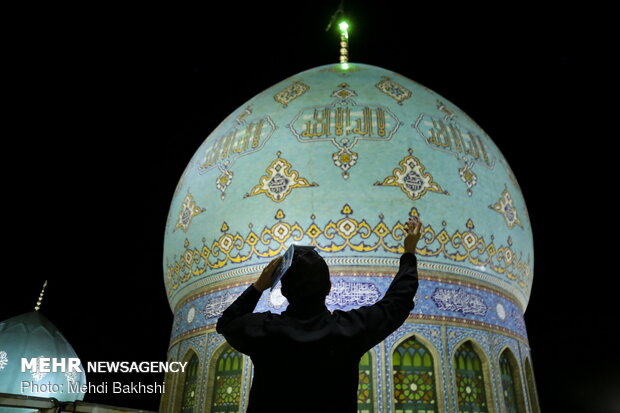
Ramadan, the ninth month of the Islamic calendar, is a time when Muslims around the world abstain from eating, drinking or smoking between sunrise and sunset.
Muslims believe Ramadan to be an auspicious month for the revelations of God to humankind, given the belief that it was in Ramadan when the first verses of the Holy Qur’an were revealed to Prophet Muhammad (PBUH). This month, they fast as an effective way of practicing self-discipline. They are also expected to strengthen their character through self-restraint, charitable-giving and introspection.
At the end of the fasting day, Muslims break their day-long fast with an “iftar” meal.
One of the main rituals of Islam, fasting is obligatory for all Muslims except the sick, pregnant women and some travelers. In all cases, once health is restored or traveling has ended, these missing days should be made up by fasting (for the same number of days).
The practice is observed for the whole month and ends with the celebration of Eid- al Fitr’.
Iranians in Ramadan
Ramadan plays an exceptional role in Iranians’ traditions, customs. Many people in Iran decorate their shops or alleys with lights and flowers. People will congratulate each other by saying ‘Ramadan Mubarak’ (blessed Ramadan).
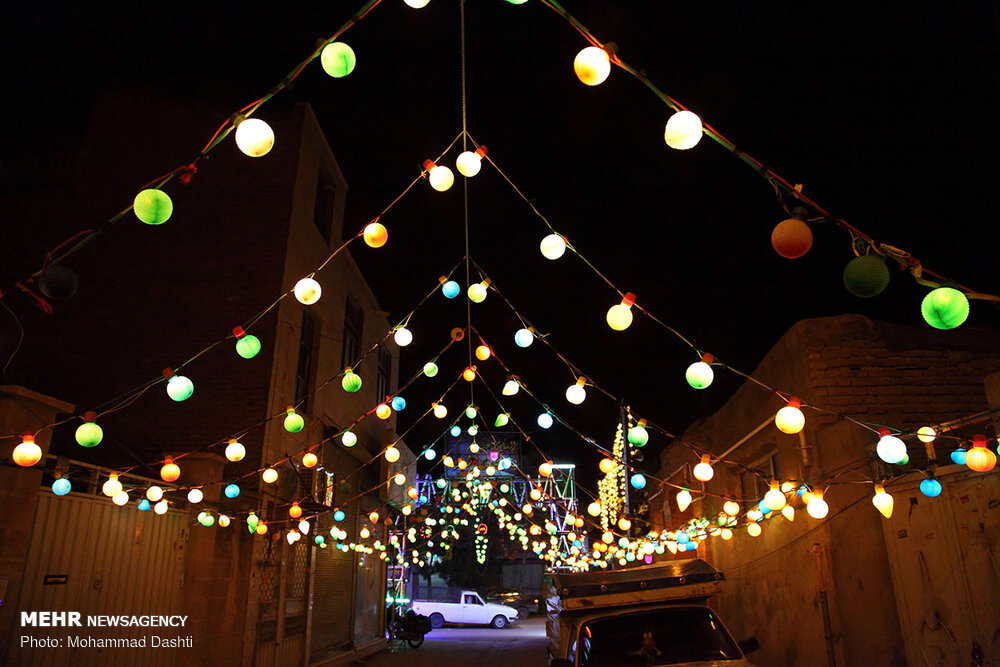
In Ramadan, people rise early before the dawn to have a pre-fast breakfast, called Sahari in Persian. The meal is usually light and normally consists of previously prepared foods.
The more elaborate meal comes at the end of the fasting day called Iftar. Iftar, if possible, is consumed with other close members of the family clan, friends and neighbors.
Mosques become more active during the holy month of Ramadan. Volunteers who perform acts of charity, distribute food and Iftar in mosques to people as a votive.
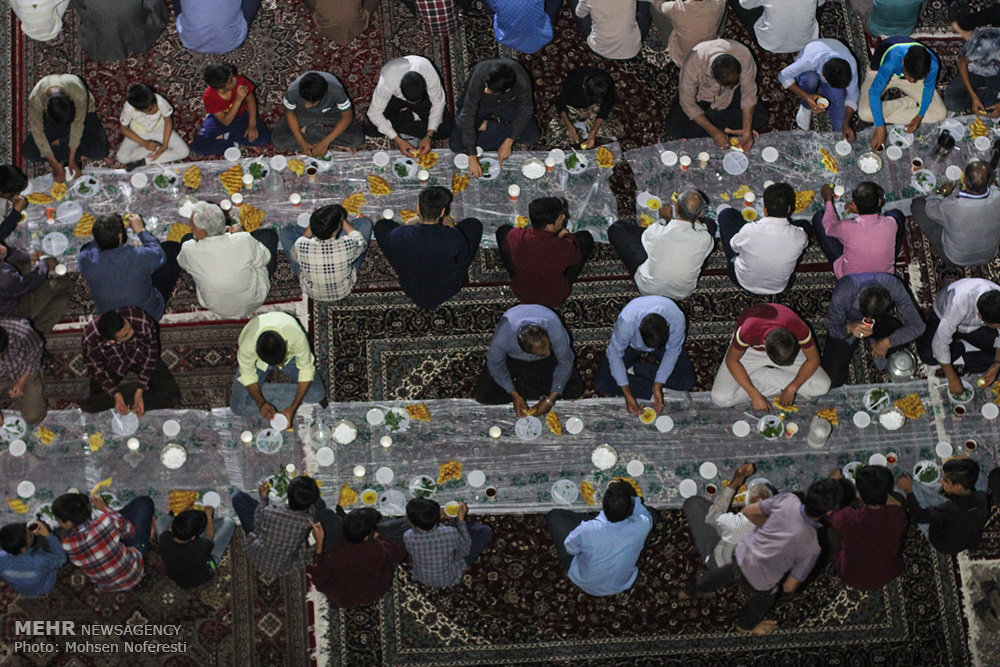
Food traditions during Ramadan
Fantastic stews, sweets, fresh dates, traditional Azari cheese with vegetables and nuts accompanied with a glass of tea to wash them down are what you can find on any dinner table in Iran during Ramadan.
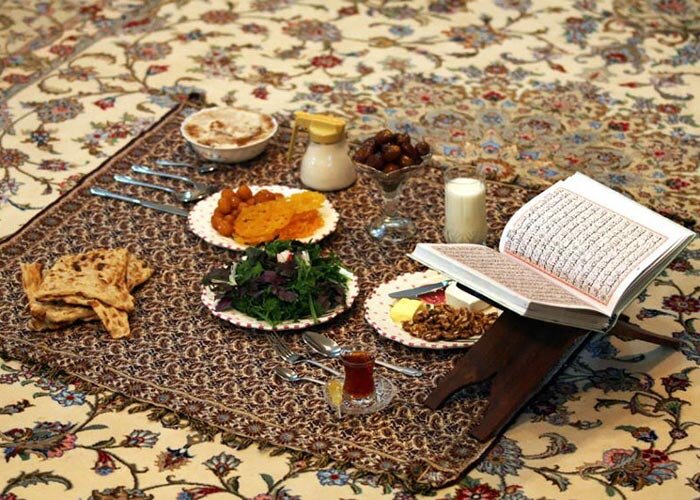
Although there is no prescribed food for the meals, Iranians have some unique cuisines some of which you may not find in other months of the year.
Zoolbia Bamieh – is a crispy Persian doughnut, made of deep-fried dough drunk in tasty syrup. Crispy on the outside, soft on the inside, these little sweets are always dripping with sweet saffron syrup.
Halim – is a very popular food in the Middle East. It is made of barley, shredded meat (beef, lamb, chicken or turkey) and spices. This dish is cooked for several hours, which results in a paste-like consistency, blending the flavors of spices, meat, barley, and wheat.
Ash Reshteh – is one of the best traditional Persian stews. Think of it as not a stew but a heavy mixture of vegetables, fried onion, meat, nuts, beans, Persian noodle, and lots of other things.
There are numerous religious rituals people observe during Ramadan.
Communal praying
Communal praying, recitations of the Quran, and preaching by the religious figures and other respected authorities are among other ceremonies held during this month.
The last 10 days are especially important because the Quran was revealed in this month at the Night of Decree (Laylat al-Qadr)
According to the Quran, the Night of Decree is better than a thousand months put together. Some people will retreat into prayers during these last ten days. These are called days of i-tikaf or retreat and it ends with the festival Id-i Fitr.
All mosques, as well as the holy shrines, across Iran host the people who want to take part in i-tikaf. They are provided with pre-fast breakfast and Iftar. Many people stay in mosques for three days to perform their religious rituals.

Martyrdom of Imam Ali
19th and 21st of Ramadan, the days of the assassination and martyrdom of Imam Ali – the first Imam – are mourned by Iranians throughout the country. Over these nights, many religious groups start their memorial ceremonies to pay their respects to Imam Ali and mourn his brutal assassination.
People stay up all night reciting special prayers and at times will hold the Quran on their heads while praying.
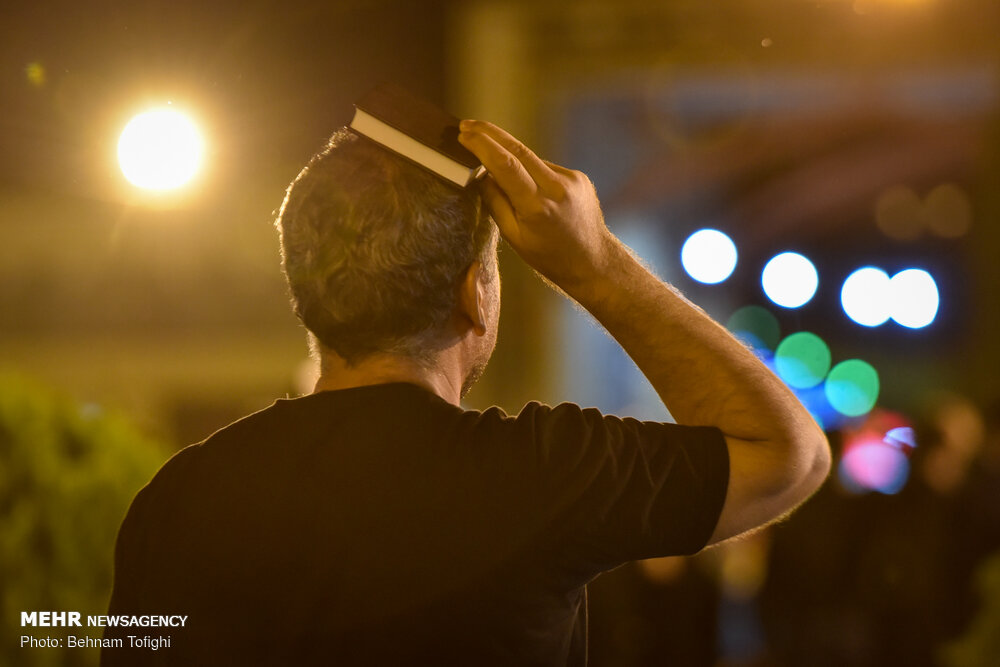
Religious rituals take place all over the country which makes Ramadan in Iran more unique and memorable. Thousands of Black-clad chest-beating local participants swarm the cities of Iran during the 21st of Ramadan, while religious street theaters, free food givers, and traditional Persian drinks (lemonade-like) on tables decorate the streets of every city.

Martyrdom is very important in Iranian culture and Imam Ali’s assassination and his martyrdom are mourned intensely by Iranians. According to the Shia beliefs, when the Prophet passed away, the leadership of the community was passed on to Ali, his cousin and son-in-law.
International Quds Day
Iranian’s, along with people across the world, mark the International Quds Day to reiterate their call for the liberation of Palestine from the Israeli regime’s occupation and to denounce Israel’s atrocities.
The International Quds Day, which falls on the last Friday of Ramadan, is a legacy of the late founder of the Islamic Republic, Imam Khomeini, who designated the day in solidarity with Palestinians. The International Quds Day has been held worldwide since the 1979 Islamic Revolution in Iran.
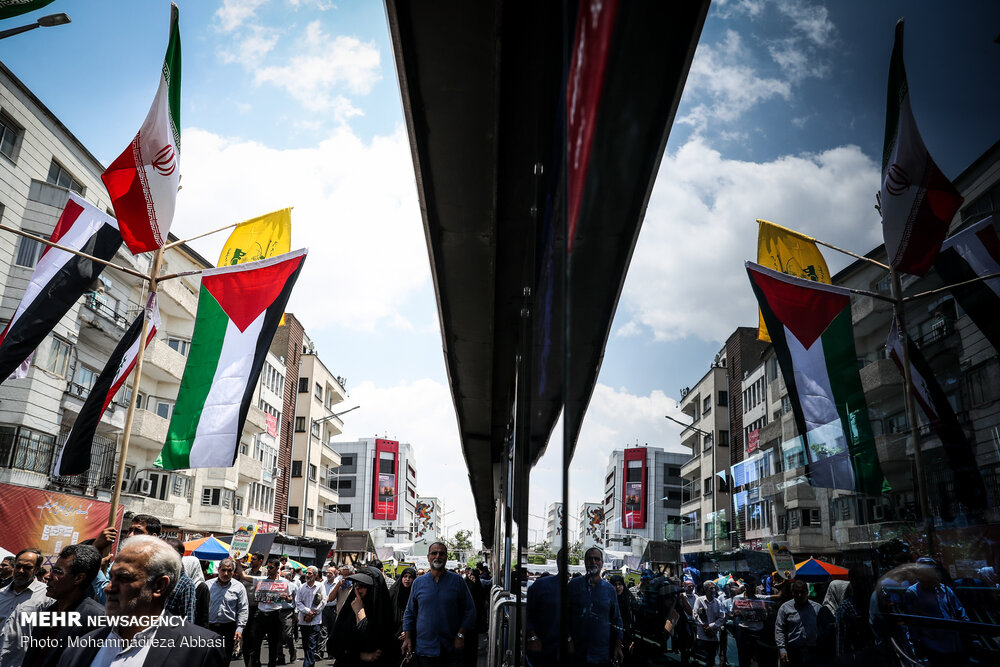
Eid al-Fitr
Eid al-Fitr marks the new lunar month of Shawwal and the end of Ramadan. The occasion is celebrated with a great feast. The feast of breaking the fast comes with a solemn prayer, called Salat al-Eid.
Most people will attend their local mosques for communal prayers. The last feast or Iftar is more elaborate and is quite often joined by family, friends and neighbors.
The prayers are usually led by prominent religious figures and Marja’s.








